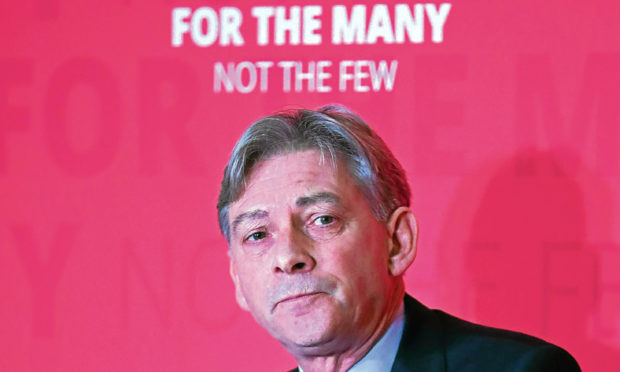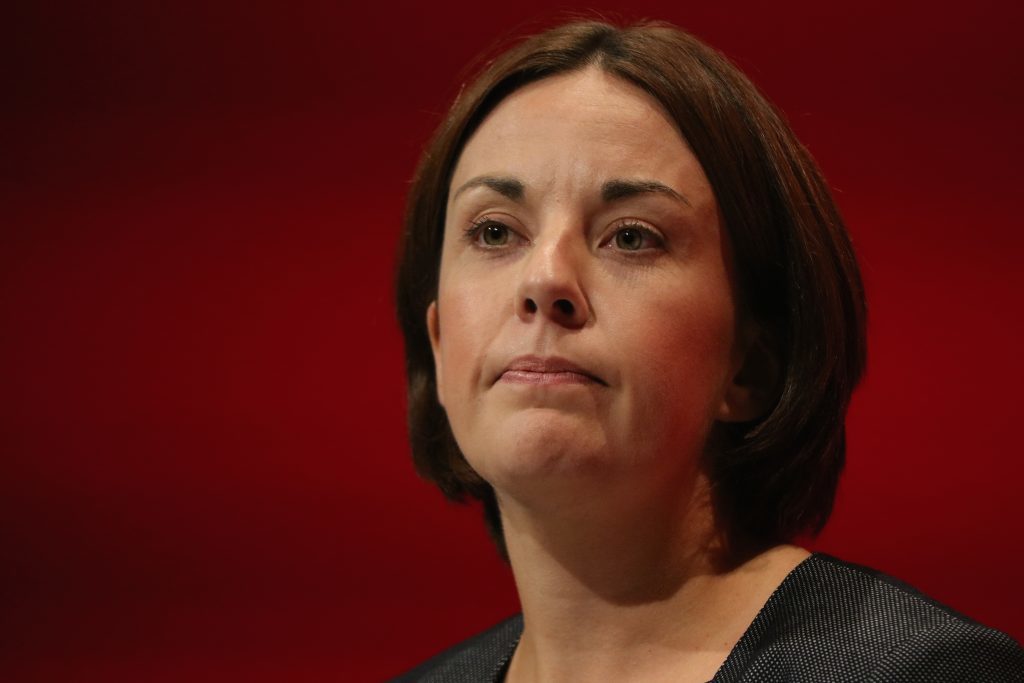As the Scottish Labour Party heads to Dundee on Friday for its spring conference, the focus is likely to be on the spat between the current and former leaders over Brexit.
Kezia Dugdale has put herself on a war footing with her successor, Richard Leonard, by spearheading a grassroots campaign to stay in the single market.
She has received support from the MP and former shadow Scottish secretary Ian Murray, and from at least 10 local Labour branches, which have lodged motions against a hard Brexit.
This puts her on a collision course with her party bosses, but outside the Caird Hall, where the conference is to take place, does anyone really care? Will anyone even notice?
Dugdale’s and Murray’s position on Europe may well resonate with other old fashioned moderates – Labour voters in parts of the country, Tory Remainers, and the Lib Dems.
And, of course, it is the SNP leadership’s current stance, but they are motivated by forces to do with Britain rather than Brexit.
But Dugdale is no longer the story in Scottish Labour circles and neither is Brexit, despite seeming to dominate the agenda.
Jeremy Corbyn has at last declared his party in favour of a customs union, which puts him broadly in the camp of growing resistance to Theresa May’s Brexit bill, but stops short of Labour backing the single market.
This he knows he cannot do because it would mean also embracing the free movement of people, which significant numbers of Labour Leavers have opposed.
Although he won’t acknowledge it, Corbyn’s party is not the party of immigration south of the border. In Scotland, where free movement has been much less of an issue because of lower levels of immigration, Labour nevertheless toes the party line.
Leonard didn’t get where he is today by challenging the stance, on Brexit or anything else, of Corbyn; he rode into power on the ultra-left coat tails of Momentum, and his Labour Party must jump to London’s tune.
He is not required to agonise about Europe; that is a matter for his senior comrades down south. All Corbyn asks of Leonard, in return for helping to catapult him into the limelight, is nothing less than the delivery of Scotland back to Labour.
And this, not Brexit or internal squabbles, is what anxious Scottish voters should be alert to as the party descends on Dundee.
This will be Leonard’s first big platform since becoming leader, his first real opportunity to present himself to the electorate.
He has inherited a party that is already in recovery following a dismal decade which saw it lose, first, control of the Scottish Government, then all but one of its Westminster seats (Ian Murray’s), and, finally, its grip of the opposition benches.
Successive Scottish leaders, perhaps more able than the present incumbent, have presided over the party’s decline in the era of Scottish nationalist ascendency. Even the defeat of independence did not restore Labour’s popularity; quite the reverse.
But Leonard may be the one who stops the rot. Labour picked up an extra six seats in last year’s general election, all from sitting SNP MPs. There were several more, close run, contests which could easily tip in Labour’s direction next time round.
And Labour has edged ahead of Ruth Davidson’s resurgent Scottish Tories in opinion polls, suggesting a steady trend towards a rehabilitation.
While Leonard cannot personally take credit for any of this, he can certainly take advantage of it.
Labour is luring supporters from the SNP and it is to this constituency that Leonard will continue to appeal. He has signalled as much by attacking the SNP over its high tax regime – it doesn’t go far enough – and its poor handling of the NHS and local government, traditional old Labour territories.
By shifting ever leftwards, Scottish Labour will hope to bring the people it sees as its natural bedrock back.
Leonard may not have proved himself in Holyrood yet, but he could turn out to be a lucky politician.
He arrives on the scene when public opinion has begun to turn against the ruling nationalists; his slate, unlike Nicola Sturgeon’s, is relatively clean, and he has no record to defend.
As Corbyn’s apostle in Scotland, he offers the prospect of radical change, which for large swathes of the electorate will be enough.
And he takes the constitutional question right off the table, which may even make him attractive to those veteran nationalists dismayed by Sturgeon’s referendum obsession.
Scotland is more than three years away from its next elections, but we shouldn’t be complacent about a left wing Labour revival.
Stranger things have happened.

